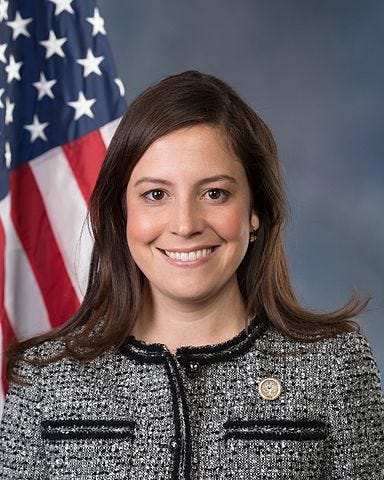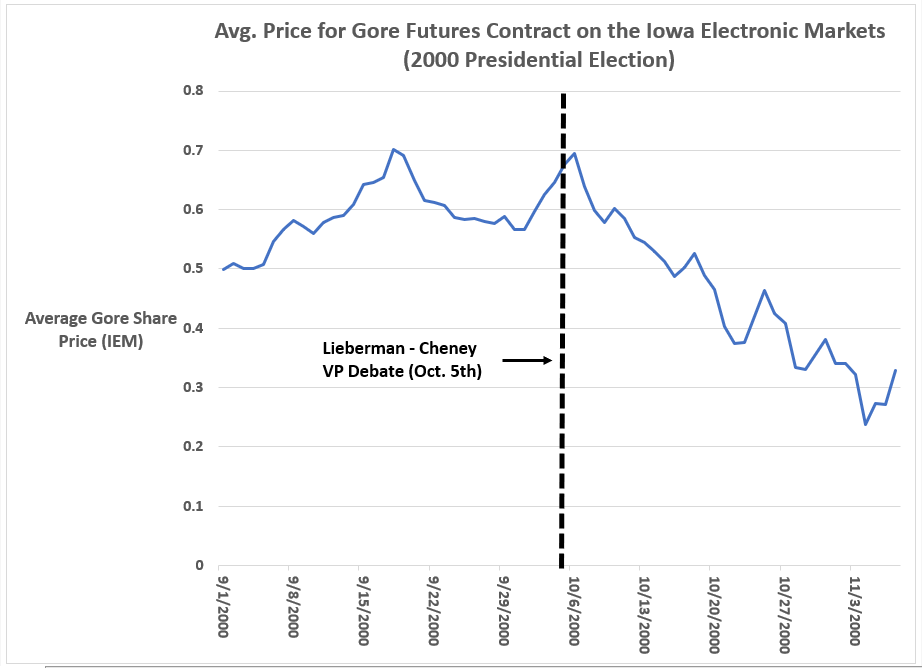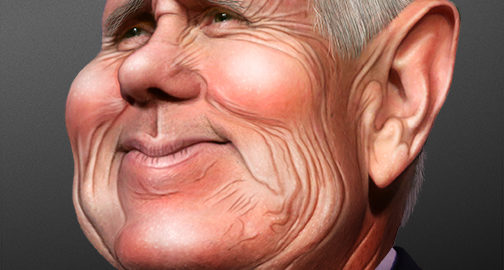By Kent R. Kroeger (NuQum.com, March 14, 2020)
The importance of the vice presidential nominee has never been as great as it will be in the 2020 presidential election. The likely Democratic Party nominee — Joe Biden — is 77 years old and the probability his VP pick could be president before the next presidential election is (to put it gently) non-zero.
As for the incumbent, Donald Trump, the current consensus is that Vice President Mike Pence will be his running mate again in 2020. But if there is a time when an incumbent president should consider changing vice presidents, this is that time.
Pence offers no home state advantage. Trump would win Indiana if his running mate was a ham sandwich. Pence’s executive experience as a former Indiana governor is no longer necessary to compensate for Trump’s inexperience in a high-elected office. And don’t try to convince me that Pence is a charismatic campaigner who generates excitement within the Republican electoral base — he is duller than a wet paper towel.
But the real reason Trump should dump Pence has more to do with Trump’s electoral vulnerability than anything wrong with Pence. First, the coronavirus pandemic is starting to wear down Trump’s job approval — it now stands at 44.6 percent in the RealClearPolitics polling average, down in just a few weeks from 46 percent (the minimum level of approval Trump needs to have a decent chance at re-election, according to my recent analysis) — and without a significant shock in Trump’s favor before November, his chance of re-election is under grave threat.
Second, let us assume Biden will pick a woman as his running mate — according to one prediction market, PredictIt.com, she will be either Kamala Harris (29% chance), Amy Klobuchar (23% chance) or Stacey Abrams (15% chance). The media narrative coming out of the party conventions invariably will include the historic importance of the Biden’s VP selection and its appeal to a lot of swing voters, particularly women.
Trump’s argumentum ad captandum (‘appeal to the crowd’) would be significantly enhanced with his own trailblazing VP choice — which, I believe, will need to be either a woman, an African-American, or an Hispanic (or, even better, some combination of those identities).
The possible VP choices for Trump are fairly obvious (listed here in order of their odds based on my best hunch):
- Former US Ambassador to the UN Nikki Haley — my bet on Trump’s pick
- U.S. Senator Martha McSally (AZ)
- U.S. Representative Elise Stefanik (NY) — my personal favorite
- U.S. Senator Joni Ernst (IA)
- U.S. Senator Ted Cruz (TX)
- U.S. Senator Marco Rubio (FL)
- U.S. Senator Tim Scott (SC)
McSally, Ernst, Cruz and Rubio also happen to come from battleground states (though, technically, Texas is not one…yet) — which should enhance their attractiveness to Trump (more on that down below).
Stefanik, though from a noncompetitive blue state, might be the most intriguing person on the list. She’s young (age 35), telegenic, an energetic campaigner, and in possession of a growing national profile since her prominent role in the House impeachment hearings last fall.

I am far from the only person betting (or hoping) Pence is not going to see a second VP term. According to PredictIt.com, Pence’s probability of being re-nominated has been plummeting since he was selected to lead the Trump administration’s task force on the coronavirus — though he has regained a some support since Trump declared a national state of emergency (see chart below):

If Trump ever wanted to set up his Vice President to fail, making responsible for trying to stop the coronavirus would be at the top of the list. On the other hand, if this country were to somehow avoid the worst consequences of this pandemic (and that looks increasingly unlikely), Pence would not only enhance his value as Trump’s VP in the 2020 election, he’d be set up as the clear favorite for the 2024 Republican nomination.
________________________________________________________________
This discussion about presidential running mates may all be for naught.
Political scientists and election forecasters have long contented that, in general, vice presidential picks don’t affect U.S. presidential election outcomes.
“Few myths of American politics remain as deeply entrenched and blindly accepted as that of the electoral power of the vice presidential pick,” political scientists Kyle Kopko and Christopher Devine wrote in Politico in 2016.
In their research on whether a presidential candidate is more likely to win their running mate’s home-state, they found that no evidence to support such a conclusion: “Over the course of a little more than the past century, a vice presidential candidate’s state of residence generally has no effect on how a presidential candidate performs in that state. The vice presidential home state advantage is, essentially, zero.”
The same researchers found that VP choices don’t help much with specific demographic groups either.
Further evidence against the significance of VPs is the fact that none of the major econometric models used to forecast presidential elections include a variable for vice presidential picks; yet, the models still successfully forecast presidential election outcomes (most of the time). When the models do make mistakes, it is not because they failed to account for the VP selections.
Nonetheless, the belief in the importance of a VP pick continues in today’s election reporting, if only because a vice president can rise to the highest office due to the death or resignation of a president.
Vice presidential picks can furthermore help in other ways beyond a possible home state advantage. They can represent a critical constituency (Mike Pence in 2000 with evangelical voters), a ground-breaking candidacy (Geraldine Ferraro in 1984, Joe Lieberman in 2000), an augmentation to the qualifications and experience of the presidential candidate (Dick Cheney in 2000, Mike Pence 2016, Joe Biden 2008), or act as the campaign’s attack dog so the top of the ticket doesn’t need to descend into the mud (Richard Nixon 1952).
The political research against notwithstanding, in reality, there is concrete evidence that a VP selection can matter, and the case I cite most often is the 2000 presidential race between Al Gore and George W. Bush.
Most of us remember the 2000 election for how close it was and the ‘hanging chads’ in Florida. Few remember the vice presidential debate between Joe Lieberman and Dick Cheney that took place on October 5, 2000 at Centre College in Danville, Kentucky.
The hot take in the news media immediately after the VP debate was that it was civil, highly substantive, and probably boring to the average voter — hence, wouldn’t affect the final election outcome. The VP debate merely highlighted and amplified differences between Bush and Gore already known within the electorate, pundits said.
But something interesting and profound happened about 24 hours after the VP debate — tracking polls began to show a softening in Gore’s support (and a strengthening in Bush’s). The largest political futures market at the time — The Iowa Electronic Markets — showed an enduring, almost monotonic decline in the probability of Gore winning the election after the VP debate (see graph below).

What was the cause? There was no significant news event in that first week of October 2000 except for the VP debate.
Focus groups I conducted at the time while a graduate student at Columbia University offered an intriguing insight: Undecided voters found Lieberman’s raspy, Elmer Fudd-like voice unpleasant and distracting, while Cheney’s demeanor was perceived as comforting.
“He’s like a wise grandfather,” one female focus group participant said of Cheney. “I want to curl up in his lap and have him read me a story.”
That is probably not the image most of us have of Cheney today (if you do, I would keep it a secret); but, in the 2000 election, the Republicans had nominated a once-hard-drinking frat boy, George W. Bush, and many swing voters were uncomfortable with his anti-intellectual tendencies. Cheney wrapped these voters in a security blanket, giving them assurance that a junior Bush presidency would be run by adults, not just Delta Kappa Epsilon frat bothers.
The rest is history. You can decide if it was for better or worse.
My point is simply that VP choices can a have deep impact on the presidential vote. No research has convinced me otherwise.
If Donald Trump is as savvy as he tells us he is, he will understand how critical it is for his re-election chances to consider picking a new running mate.
Sorry, Mike. No time to worry about getting dumped from the GOP ticket. You have a far more important challenge facing you right now.
- K.R.K.
Comments and hot takes can be sent to: kroeger98@yahoo.com
